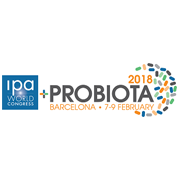With support and funding from the IPA, the findings review over 1,000 probiotic-related clinical trials. Dr Rijkers will give a taster of where the industry is at with probiotics, outlining the product development opportunities arising as a result.
“In terms of primary outcomes: many studies address the recognised application of probiotics being gut health and immune mediated diseases,” he said.
“We also see clinical studies on coeliac disease, portal hypertension, kidney failure,” he added. “In addressing the gut-brain axis we also see studies on pain relief, stress relief, Alzheimer’s and Parkinson’s.”
The rise of psychobiotics

The gut-brain axis is an area of probiotic research that Dr Rijkers has himself admitted to being excited about not least because of the potential breakthrough psychobiotics are promising.
Probiotic strains like Lactobacillus are key to affecting this intestinal-neuro highway although the bulk of supporting research has been animal-based or in vitro. Currently there is very little clinical evidence.
But according to Dr Rijkers, professor of biomedical and life sciences at the University College Roosevelt in Holland, mounting evidence could see a push towards more human-centric studies.
“Currently there is no effective treatment for the major neurodegenerative diseases, dementia and Parkinson’s,” he explained.
“Even if probiotics would be capable of slowing down the progression of the disease that would already be fantastic. It will however require large, and long-term clinical studies before we will get there.”
Dr Rijkers and his team’s comprehensive review is a sign that momentum is gaining pace. The majority of trials examined deal with patients, but a number of them are also registered as dealing with healthy individuals.
There is a great variation in the number of study participants, he added with an average around 180 per study but ranging from 10 to more than 4000.
To add further breadth to his review Dr Rijkers sought further data from the US National Institute of Health (NIH) and the World Health Organisation (WHO), making the work an exhaustive and reliable source of information.
What are psychobiotics?
Psychobiotics refer to the live probiotic and prebiotic bacteria which, when consumed, offer mental health benefits by interacting with commensal gut bacteria.
Psychobiotics are thought to promote anxiety-reducing and antidepressant effects, resulting in changes in emotional, cognitive, systemic, and neural states.

IPA World Congress + Probiota 2018
The rapidly evolving universe of probiotics, prebiotics and the microbiome will be discussed in-depth at the upcoming IPA World Congress + Probiota 2018 in Barcelona on February 7-9.
From microbiome advances, to start-up game changers, market stats, crucial clinical science and regulatory knowledge, this is a congressional must-have.
Will you be joining your peers in one of Europe’s great cities?
Other areas of potential?
Dr Rijkers also highlights another emerging field in the probiotic arena highlighting the relation between gut microbiota composition and outcome of checkpoint inhibition immunotherapy in cancer patients.
Here, much has been made of a link between the microbiome and how well the patient responds to treatments that help the body recognise and attack cancers such as melanoma skin or lung cancer.
In keeping with probiotic research much of the work being done in this emerging area has been carried out on mouse models with pioneering studies to explore the association starting as recently as 2015.
Looking towards the future, Dr Rijkers wants to see a continued collaboration between industry and academia, which he agrees is critical in advancing probiotic product development.
“As an academic researcher I study mechanisms of probiotics action in a given number of clinical conditions.
“When, as a researcher you find a positive result, it is important to publish those results, but also try to make these results and product available to others (e.g. other patients or other risk groups).
“For the latter it is important to seek collaboration with an industrial partner.”
